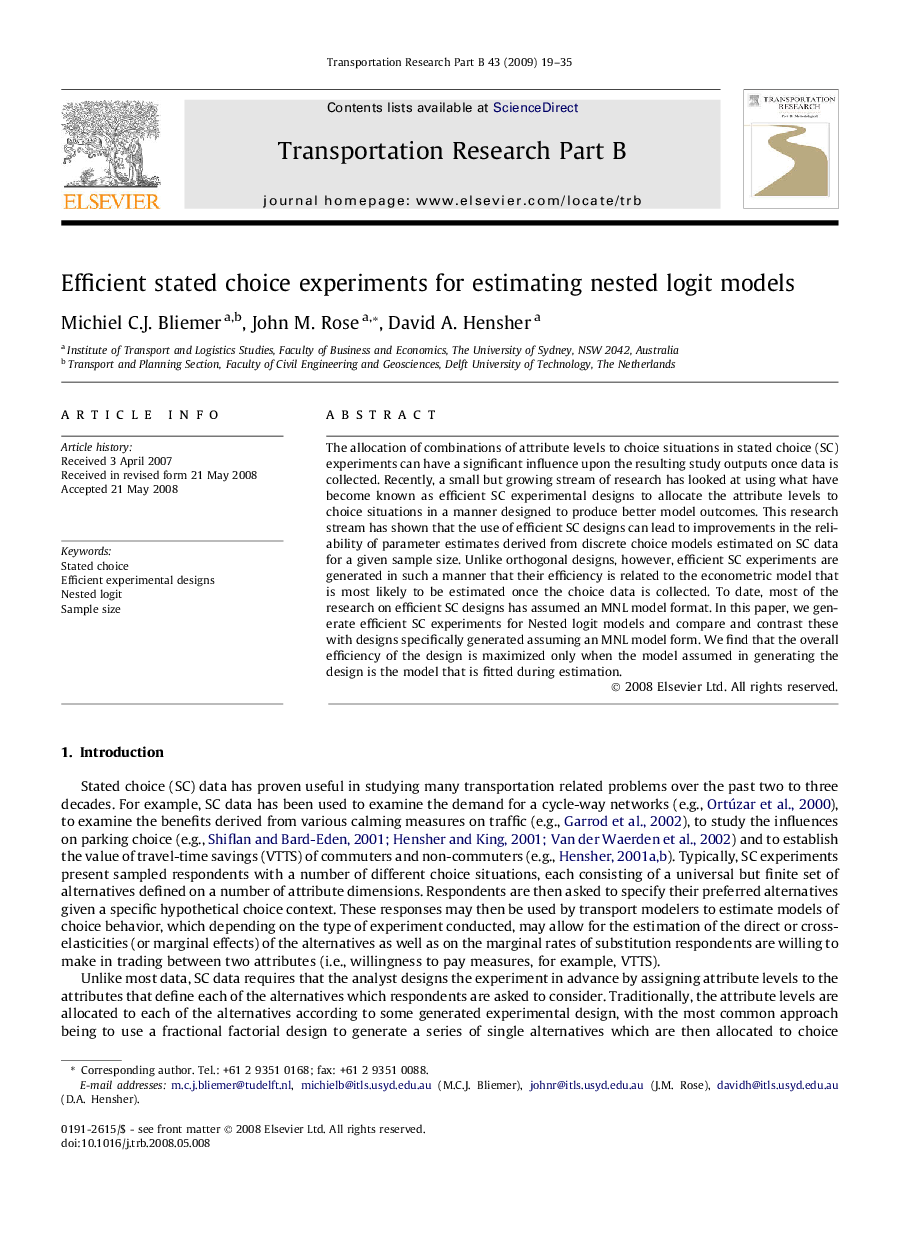| Article ID | Journal | Published Year | Pages | File Type |
|---|---|---|---|---|
| 1132756 | Transportation Research Part B: Methodological | 2009 | 17 Pages |
The allocation of combinations of attribute levels to choice situations in stated choice (SC) experiments can have a significant influence upon the resulting study outputs once data is collected. Recently, a small but growing stream of research has looked at using what have become known as efficient SC experimental designs to allocate the attribute levels to choice situations in a manner designed to produce better model outcomes. This research stream has shown that the use of efficient SC designs can lead to improvements in the reliability of parameter estimates derived from discrete choice models estimated on SC data for a given sample size. Unlike orthogonal designs, however, efficient SC experiments are generated in such a manner that their efficiency is related to the econometric model that is most likely to be estimated once the choice data is collected. To date, most of the research on efficient SC designs has assumed an MNL model format. In this paper, we generate efficient SC experiments for Nested logit models and compare and contrast these with designs specifically generated assuming an MNL model form. We find that the overall efficiency of the design is maximized only when the model assumed in generating the design is the model that is fitted during estimation.
